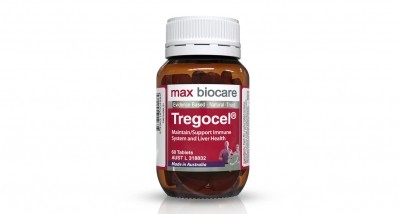Diet and rheumatoid arthritis: Review shows no specific diet more effective for managing condition

Rheumatoid arthritis (RA) is a chronic inflammatory disease that causes pain, joint stiffness, swelling, fatigue and weakness.
People living with RA are commonly prescribed medications to decrease joint pain, swelling, and inflammation. Most people also frequently experiment with different dietary approaches to seek improvements in their symptoms.
In this systematic review, researchers analysed 20 clinical trials of different dietary approaches used by people with RA including Mediterranean, anti-inflammatory, vegan/vegetarian, allergenic-free diets, as well as diets with omega-3 supplementation and found they have varying effects on RA outcomes and do not always lead to improvements.
“This review of 20 dietary intervention studies found results were inconsistent across the included studies and did not provide a clear indication to support a specific dietary management strategy for RA,” they published in Nutrients.
However, dietary interventions combined with omega-3 supplementation seem to provide added benefits compared to diet alone.
They added, “Results of this review must be interpreted with caution and no conclusions must be drawn as to which diet is more effective for the management of RA.”
To the authors’ knowledge, there is a lack of trials exploring dietary management for RA and they believe this is the first study to explore explicitly the effects of dietary interventions either alone or in combination with omega-3 supplementation on a range of outcomes in RA.
Data from 20 studies
In this study, 20 randomised controlled trials and non-randomised controlled trials were included, narrowed from 3,370 studies taken from online databases.
There were 1,063 participants representing nine countries in Europe and US.
The subjects were adults (mean age: 48.5), mostly females (80%) and diagnosed with RA. The dietary intervention period ranged from 3 weeks to 13 months.
Any dietary intervention approach was included which were classified into Mediterranean, vegan, vegetarian, liquid formula, allergenic-free, ketogenic, anti-inflammatory diet rich in omega-3 PUFAs, and regular diet supplemented with omega-3 PUFAs in the form of fish oil.
Omega-3 PUFAs are the most studied supplements in RA clinical trials.
Inflammatory markers
The inflammatory markers evaluated varied in the included studies and different diets seemed to have different effects on the inflammatory markers assessed.
For instance, those on liquid and vegetarian diet had decreased erythrocyte sedimentation rate levels.
Those on vegetarian, anti-inflammatory diet and those supplemented with fish oil experienced significant improvements in C-reactive protein levels.
People on a diet with fish oil supplementation found a significant reduction in tumor necrosis factor-α and leukotriene 4 levels.
Overall, dietary interventions such as the vegetarian diet and anti-inflammatory diet resulted in significant improvements in inflammatory markers.
Clinical measures
In assessing clinical measures, similarly no specific dietary management significantly improved all RA outcomes and results were inconsistent.
Those on Mediterranean and vegetarian diets had significant improvement in pain.
Subjects on diet supplemented with fish oil, vegetarian, and Mediterranean diets had significantly lower early morning stiffness.
Grip strength significantly improved following liquid, vegetarian and diet supplemented with fish oil.
The number of tender and swollen joints significantly decreased for people on the liquid, vegetarian, allergenic-free, anti-inflammatory diet and those supplemented with fish oil.
For those on medication, the dose of corticosteroids was significantly reduced for participants following a diet with fish oil supplementation.
“While several dietary interventions including anti-inflammatory, Mediterranean, and vegetarian diets resulted in beneficial changes, it was not possible to determine whether a specific diet is associated with certain parameters,” researchers said.
These diets are similar in that they are all high in antioxidants, fibres, vitamins and minerals, which have anti-inflammatory properties and can alter the inflammatory processes and pathways in RA, reflected by improvements in symptoms.
For omega-3, it is well-known to have anti-inflammatory properties and can reduce inflammation by elevating autophagy in macrophages. The results also indicate that the anti-inflammatory benefits of a diet in combination with omega-3 may be superior to the diet alone and further research in this area is warranted.
However, the actual mechanisms for the influence of dietary interventions on the different parameters of RA remain unclear.
This systematic review is limited by its lack of standardisation of outcome measures, types of dietary interventions, and methodologies made it difficult to synthesise studies and draw conclusions.
While certain dietary interventions including anti-inflammatory, vegetarian, and Mediterranean diets may help alleviate the symptoms significantly, and others mildly, only highlights how further research is needed to draw definitive conclusions as to which diet is best for disease management in adults with RA.
“Both short- and long-term effects of various dietary interventions on important RA measures need to be specifically investigated. Studies with adequate long-term follow-up and larger sample sizes are required for future research,” researchers concluded.
Source: Nutrients
https://doi.org/10.3390/nu13103506
“Dietary Interventions with or without Omega-3 Supplementation for the Management of Rheumatoid Arthritis: A Systematic Review”
Authors: Tala Raad, et al.

















